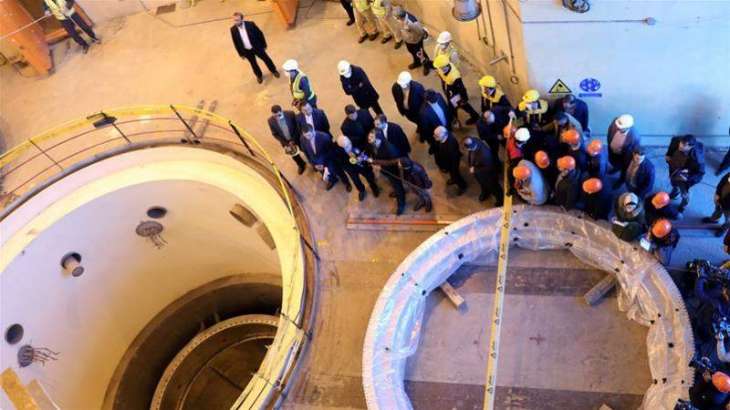The move by the European participants of the Iran nuclear deal to launch the dispute resolution mechanism, intended to bring the US and Iran back to the negotiation table, is a high-risk gamble that may see Iran completely abandon what little restrictions it still maintains toward the agreement, former US energy secretary and principal architect of the deal, Ernest Moniz told Sputnik Thursday
MOSCOW (Pakistan Point News / Sputnik - 20th February, 2020) The move by the European participants of the Iran nuclear deal to launch the dispute resolution mechanism, intended to bring the US and Iran back to the negotiation table, is a high-risk gamble that may see Iran completely abandon what little restrictions it still maintains toward the agreement, former US energy secretary and principal architect of the deal, Ernest Moniz told Sputnik Thursday.
"The Europeans have now launched the dispute resolution mechanism formally and our view is that that is a risky proposition ... it could lead to a pathway back into the deal and it could worsen the situation by making Iran totally abandon the deal, including verification. If that happens, that's a very bad step... it's a high-risk gamble," Moniz said to a Sputnik correspondent in Switzerland's Geneva.
Germany, France and the United Kingdom in mid-January announced the launch of the dispute resolution mechanism included in the Iran nuclear deal, officially named the Joint Comprehensive Plan of Action (JCPOA), after Iran began to gradually suspend its commitments to the deal.
Moniz, the notable Obama-era nuclear physicist, also said that he saw little chances of the US and Iran making moves towards a positive resolution this year.
As stipulated in the deal, a dispute settlement mechanism is provided in the case that one party believes that Iran is not fulfilling its obligations. If the dispute is still not resolved, the parties to the transaction may declare that its conditions are not fulfilled at a meeting of the joint commission and notify the UN Security Council of a violation of the JCPOA. After that, the Security Council should vote on the extension of the regime for lifting sanctions against Tehran, and if it is not adopted after 30 days, all UN Security Council sanctions will be restored.
Should this be the case, Iran may preemptively suspend all its commitments to the deal to declare such moves illegitimate. Iran has so far allowed observers to monitor activity at its nuclear sites. Iran said it would return to full compliance if sanctions against it were lifted.
The nuclear deal was signed in 2015 by Iran, China, France, Germany, Russia, the United Kingdom, the United States and the European Union. The US unilaterally withdrew from the agreement in 2018 and imposed sanctions on Tehran. On January 5, Iran announced that it would abandon its remaining portion of commitments under the JCPOA, specifically on the acceptable levels of uranium enrichment.




